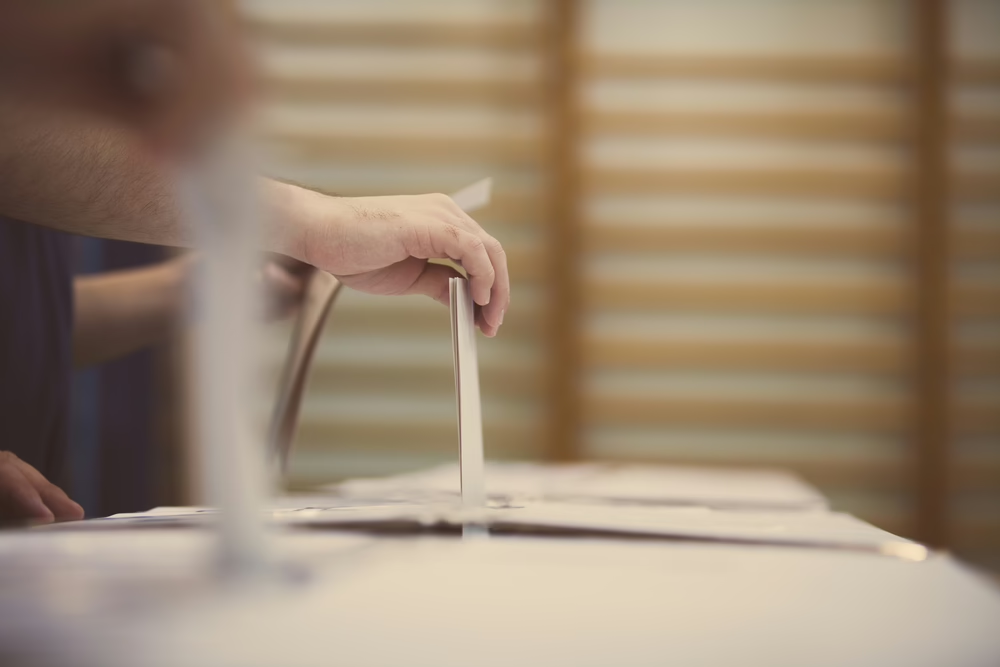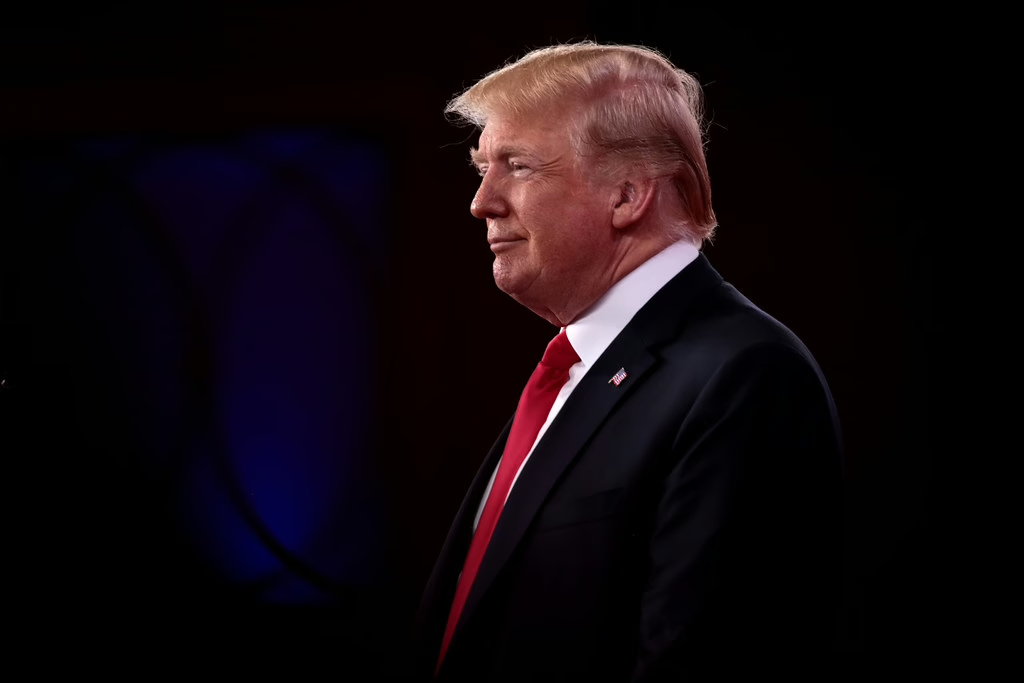
Welcome to another edition of The Topline. Since our newsletter relaunched last December as part of the RDI community, we’ve explored in depth a dozen critical topics impacting our democracy in 2024.
With freedom increasingly under threat in the US and abroad, we’ll be expanding our biweekly coverage to include more stories we’re tracking in these perilous times.
For our long-time readers, the format will feel familiar. For those of you newer to The Topline, we hope you enjoy the additional news and commentary. As always, we thank you for reading! —Melissa Amour, Managing Editor

Don’t cry for me, Iran
What the sudden death of Iran’s president Ebrahim Raisi means for the future of the nation’s regime is an important question. Equally important is the question of why EU countries are sending sympathies to a regime after the death of an autocratic tyrant.
The president of the European Council Charles Michel had this to say on Raisi’s abrupt demise: “The EU expresses its sincere condolences for the death of President Raisi and Foreign Minister Abdollahian, as well as other members of their delegation and crew in a helicopter accident. Our thoughts go to the families.”
With a number of polls showing citizens within EU nations increasingly skeptical of the very idea of democracy, now more than ever, EU officials need to restore faith in democracy, not mourn the death of autocrats. Don’t take it from us; take it from the faces targeted by Iran’s machine of repression.
“In the wake of Raisi’s death, I call upon the West to defend its values. I’m not asking you to dance on Raisi’s grave, but to prioritize where you direct your time and energy. Stand in solidarity with the brave women of Iran who refuse to be silenced or to surrender to oppression.” —Masih Alinejad, RDI freedom fellow and exiled Iranian-American journalist
Stay up-to-date and discover ways to participate as we fight to protect democracy.
| Get involved |
The many trials of Julian Assange
WikiLeaks founder Julian Assange won his bid to appeal his extradition to the US on espionage charges, and some folks are celebrating it as a win for free speech. Don’t be fooled.
“Though it’s true that Julian Assange uncovered some things that the public should know about, his selective leaks indicate that he is not a well-meaning whistleblower, but someone actively seeking to undermine the US and other free countries. His work aimed to expose and undermine the DNC, but not the RNC; to embarrass the United States government, but not the Russians and the Chinese.
The freedoms of speech and press are core principles of our organization, but we cannot allow them to be turned into weapons against the institutions of liberal democracy. There is a critical difference between defending those rights on principle and abdicating our responsibility to call out those who abuse and pervert them.” —Uriel Epshtein, RDI CEO
And speaking of Russia
America’s strategy to help defend Ukraine from Putin’s onslaught has been lacking recently—to say the least. And with nearly $61 billion in US aid trickling into the front line, there is no better time than the present to think about what comes next in Ukraine. Fortunately, RDI’s General Ben Hodges and Garry Kasparov have a plan.
READ THIS TOO: We Need Regime Change in Iran and Russia —Garry Kasparov
A close call in Georgia
For weeks, Georgians protested a new anti-free media law that the government in Tbilisi passed supposedly to promote transparency and curb foreign influence. But critics say it’s a bit too much like legislation used by the Kremlin to silence opponents—and could obstruct Georgia’s bid to join the EU. President Salome Zourabichvili agreed and vetoed it.
Disinformation is back
Actually, it never left. But now, China appears to be joining Russia in its attempts to influence US elections.
“To see the messages that Beijing is trying to spread, all you have to do is click on the websites of the China Daily newspaper or Xinhua News Agency, two of the Communist Party’s leading propaganda organs. Recent articles seek to discredit U.S. standing to promote human rights (“U.S. police brutality against student protesters exposes hypocrisy on free speech”), exacerbate tensions between the United States and its allies (“America’s toxic relations with allies”), and magnify internal U.S. political polarization (“Trump a symptom, not cause of U.S. polarization”).
More insidious than this overt messaging is the covert propagation of similar themes from accounts that are not directly linked to the Chinese government — that in fact often pretend to be Americans or other foreigners voicing their own opinions.” —Max Boot, senior fellow at the Council on Foreign Relations
READ THIS TOO: Democracy is losing the propaganda war —Anne Applebaum
Will high grocery prices kill democracy?
Americans of all political persuasions are bearing the burden of high grocery prices. While some key economic indicators, like jobs and GDP, show robust growth, a new Harris poll conducted for The Guardian found that nearly three in five Americans believe the country to be in an economic recession, and 55 percent believe the economy is shrinking.
“Many may think that democracy is broken because it neither provides what they expect nor reflects the values they hold. Being laid off and experiencing rising food prices, or disapproving of prevailing positions on socially divisive issues such as abortion, can lead a person to think that supporting mainstream politicians and the usual practice of electing officials is not enough to guarantee that their interests are represented.” —University of Southern California
Now, economic anxieties have aided Donald Trump’s bid for reelection. A recent Bloomberg poll noted that, “Roughly 51 percent of registered voters in the survey said the economy was more robust under the former president.”
Can a Kennedy save the day?
With all due respect to RFK Jr., we’re talking about Jack Schlossberg, the son of Caroline Kennedy Schlossberg and grandson of former President John F. Kennedy.
As younger Americans grow more disillusioned with establishment politics by the day, he may have found the key to reaching them: memeing for democracy.
A modest legion of Gen Z fans online admire Jack’s humor and shamelessness. Considering the Democratic Party’s ongoing identity crisis, they might want to take notes.

- Democracy is a top concern for many voters. We asked them why —ABC News
- ‘Hitler’s language, not America’s’ —CNN
- How fear and menace are transforming politics —The New York Times
- Senators Welch & Rounds introduce bipartisan Deliver for Democracy Act —News/Media Alliance
- Minnesota governor signs pro-voting package —Democracy Docket
- This change to Illinois election law denies voters a choice on their ballots —Chicago Sun-Times
- ‘We don’t have a democracy’: Why some Oregonians want to join Idaho —The Guardian
- Corporate America is mobilizing to support democracy in 2024 and beyond. Here’s how —Fortune
- Reports offer new insights on strengthening democracy —The Fulcrum
- Nicholas Kristof: ‘Never bet against democracy in the long run’ —The New York Times






